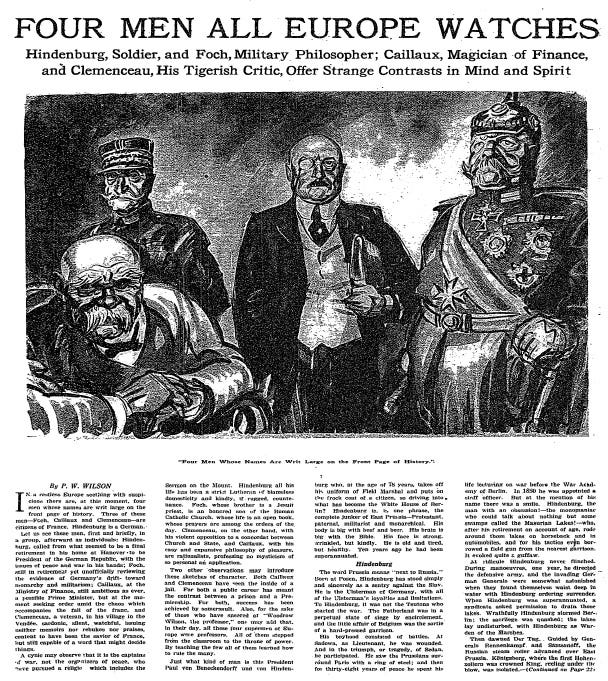Four Men All Europe Watches
In 1925, New York Times Magazine named the "four men all Europe watches" and "whose names are writ large on the front page of history": Paul von Hindenburg, Ferdinand Foch, Joseph Caillaux, and Georges Clemenceau.
Today, aside from historians, probably none of those four remain household names.
Hindenburg served as German President until his 1934 death – succeeded by Hitler as führer, whom Hindenburg had appointed as chancellor the year prior, in 1933.
Foch served as Supreme Allied Commander in World War I, but according to his biography, was basically retired and not doing much circa 1925. Curious that this article would still describe him as so eminent, then?
Caillaux was the former French Prime Minister from 1911-12, and had just been named Finance Minister the month prior to this article's publication, in April 1925. However, he would only serve in the role until that October. He wasn't out of the government for long, though, getting elected to the French Senate less than two years later, in January 1927.
Clemenceau was also a former French Prime Minister from 1906-09, then once more from 1917-20. Similarly to Foch, it appears he wasn't doing much in 1925? Apparently he spent most of the years 1923-27 writing his giant two-volume work about history, science, and philosophy called Au Soir de la Pensée.
Coming right around the corner in 1925 were at least several European men whose names actually would be writ large on the front page of history, like Hitler, Mussolini, and Churchill. To a slightly lesser extent in terms of name recognition, but still fairly big, probably names like Chamberlain and de Gaulle too.
Four Men All Europe Watches: Hindenburg, Soldier, and Foch, Military Philosopher; Caillaux, Magician of Finance; and Clemenceau, His Tigerish Critic, Offer Strange Contrasts in Mind and Spirit


